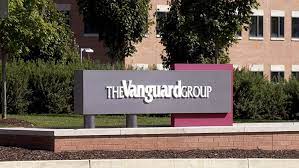In an attempt to sustain high interest rates following years of unpredictable governance under President Tayyip Erdogan, American investment behemoths Pimco and Vanguard have recently purchased local Turkish assets.
Interviews with senior money managers at the firms reveal that since Turkey’s re-election in May, two of the largest investors in the world, managing a combined $10 trillion in assets, have become more positive about the country.
Although Pimco and Vanguard did not disclose the precise amount of their purchases, the investments show confidence following a prolonged period of foreign outflow from Turkey and its exclusion from the world’s emerging markets.
Pramol Dhawan, managing director and head of emerging markets at Pimco, which is responsible for almost $2 trillion in assets, stated, “We are constructive on Turkish assets, in particular local currency assets, due to the tightening of financial conditions to rein in spending and control inflation and the gradual easing of regulations that distort asset prices.”
With over $7.5 trillion under management, Vanguard is the second-largest money manager in the world. Late last year, while attending meetings in Turkey, Nick Eisinger, co-head of Emerging Markets Active Fixed Income, and a few other investors purchased Turkish local bonds without hedging.
In a different interview, Eisinger remarked, “It was a bit of a watershed moment,” adding that benchmark yields subsequently fell by 500–600 basis points between November and mid-December before slightly recovering this week.
Last month, purchasing demand from overseas reached a six-year high, but credit default swaps (CDS), a crucial risk indicator, fell to less than half of their May levels.
That is a stark contrast to the past, when Erdogan oversaw a program of reducing interest rates in response to skyrocketing inflation and increased authorities’ control over foreign exchange, debt, and credit markets, making them essentially state-managed.
To control inflation, which approached 65% last month, Erdogan appointed Hafize Gaye Erkan as head of the central bank and new government in June. Since then, Erkan has raised interest rates by 3,400 basis points to 42.5%.
The bank said that while it would continue to implement a strict monetary policy for as long as necessary, it would immediately stop its rapid rate hikes. Also, to open up banks and financial markets, authorities have started to untangle dozens of restrictions.
Given the high levels of domestic demand and dollarization, as well as the prolonged depreciation of the lira, Pimco’s Dhawan stated that “a period of real FX appreciation coupled with tight fiscal policy is needed to bring down inflation towards target levels.”.
He stated, “We are already starting to see some benefits materialize from this coordinated policy framework,” and added that a major investment worry had been allayed by the growing foreign exchange reserves.
RISK OF ERDOGAN
The possibility of disproportionate bond returns has attracted overseas interest, despite some investors’ caution. The biggest asset management firm in Europe, Amundi, has reportedly become more optimistic about Turkish assets.
As his ruling AK Party attempts to retake control of major cities in countrywide local elections on March 31, investors think there is a chance that Erdogan could grow weary of the drawn-out and costly return to orthodoxy, which includes a slowdown in the economy.
Erdogan’s greatest election losses in over 20 years of office came from opposition victories in his home cities of Istanbul and Ankara five years ago.
Erdogan, a former self-described “enemy” of interest rates, utilized the budget and central bank to provide record social expenditure and used foreign reserves to stabilize the lira to bolster his campaign ahead of last year’s election.
In the past five years, he has also fired four central bank chiefs, undermining the institution’s independence. As a result, foreign ownership of government bonds fell from 20% in 2018 to less than 1% in late 2018, however, they eventually rose back above 1%.
According to Vanguard’s Eisinger, “the real litmus test is what happens in the next few months” with the elections and the central bank’s emphasis on combating inflation.
Vanguard made an investment when Turkish bond yields were close to 35%, and it had the potential to grow the holding, he added.”Potentially,y we would look to do more of that trade if yields back up.”
The Turkish lira was deemed a significant emerging market investment for 2024 by Wall Street bank JPMorgan, while in November UBS advised customers to take a “tactical long” position in the currency.
On Thursday of next week, Mehmet Simsek, the finance minister, and Erkan, the new central bank chief and a former Goldman Sachs banker, will give a presentation of Turkey’s policy agenda to international investors in New York.

















